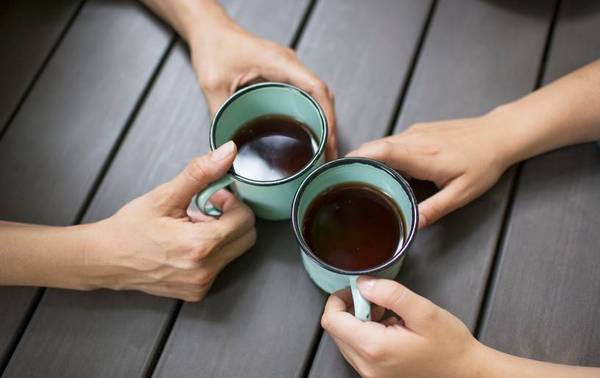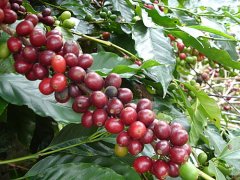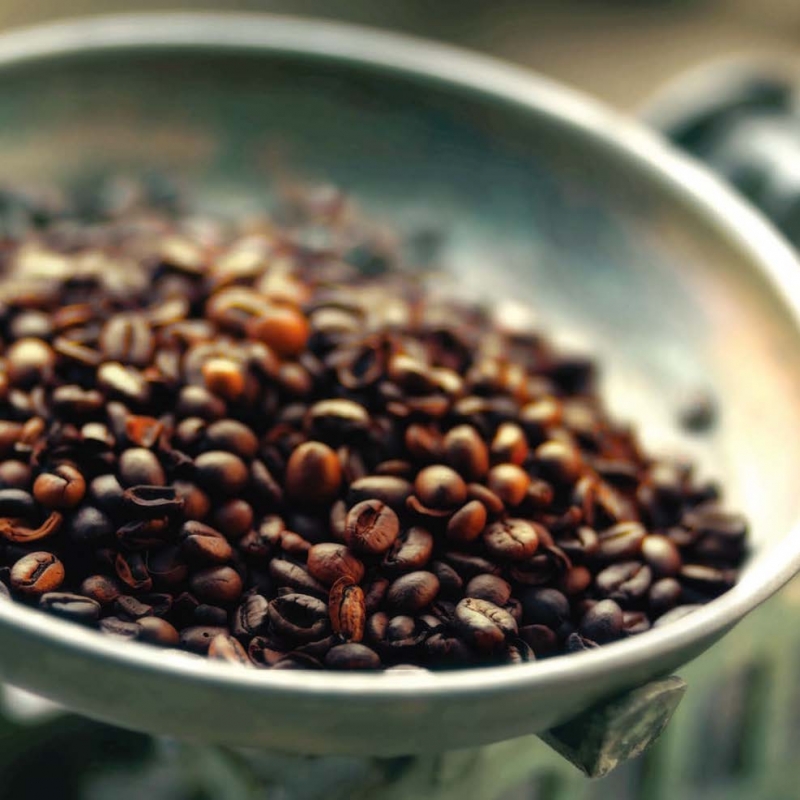Cold knowledge | number one coffee producer in the world-there is no American coffee in Brazil

For professional baristas, please follow the coffee workshop (Wechat official account cafe_style)
Just want to taste the beautiful original taste of Brazilian coffee in the country of origin, why is it so difficult!
Brazil, which I like, and the United States, where I live for a long time, are obviously not good friends.
Holders of American passports do not need visas in almost most countries in the world, with the exception of Brazil, which is extremely expensive. The Brazilian consulate just shrugged and said in soft, sweet Brazilian Portuguese, "treat him in his own way." (huh? Isn't that what Zhu Xi said? ) because Brazil, as an unimpeded big country in South America, is dismissive of the American policy of discriminating against Brazilian passport holders (what Brazilians don't know is that the United States should discriminate against all non-Americans, right? )
Brazil is one of the most famous coffee producing countries in the world. I am also a person who likes to drink coffee and drinks countless cups of black coffee every day. Naturally, I am looking forward to going to Brazil to drink coffee from the origin.
Unexpectedly, when I walked into a cafe in Rio and took it for granted to order "Caff é Americano", the clerk looked at me with empty beautiful eyes.
Huh? Don't you understand?
In desperation, I ordered a latte. However, Brazil is like many vast developing countries, because the refrigerated transport technology and equipment are limited, and the price is high, so it is usually unable to drink fresh milk, but replaced with long-lasting milk, the flavor is naturally poor.
The next day I changed to another restaurant and tried to order American coffee. Sure enough, I failed again. Even so, I drank the most typical Brazilian coffee é zinho, that is, espresso in an almost one-to-one ratio of espresso to sugar. The local cafeteria usually put a pot at the checkout counter and have a drink while waiting in line to pay the bill.
Just want to taste the beautiful original taste of Brazilian coffee in the country of origin, why is it so difficult!
In this way, a week or two passed. Suddenly one day, when I was helplessly drinking a cappuccino in the same coffee shop, I suddenly saw the local people at the next table drinking my coveted American coffee.
I immediately bounced up from my seat, ran to the counter and followed the cashier behind the high glass counter, tilted my feet and raised my head, like an angry little boy, pointed to the guest's cup of coffee and said, "that's what I want!"
In many traditional cafes in Brazil, you have to pay at the cashier and get a receipt before you order with the clerk behind the counter, so you have to think about everything you want to eat and drink, and you can't think of anything. This is really a great loss for foreigners who are not good at Portuguese, because it is really difficult to describe the traditional pastry I want to eat but do not know what to call it, so I have to start to compare hands and feet in disgrace. I suspect that the Brazilians did it on purpose. It must be interesting to see foreigners flushed, struggling and angry.
The cashier sighed and came out from behind the glass counter, only to find that she was so short. All the people standing in line behind me looked helplessly as the cashier glanced at the table where I pointed. The cashier picked his eyebrows and said, "Caf é Carioca!"
What the heck! In cafes all over the world, as long as you say "American coffee", you can easily drink a cup of espresso with hot water. The only exception is that when you hate beauty to an artistic Brazil, you call American coffee "Caf é Carioca" in order to stir up ethnic hatred.
After tossing about for a long time, I finally drank the original black coffee, picked up the cup contentedly and took a sip full of anticipation.
"mm-hmm. It really doesn't taste good. "
Later, I learned that all the good coffee in Brazil was exported, but about 1/5 of the defective beans that were of poor quality and could not be exported became domestic sales in Brazil's domestic market and became coffee that Brazilians drink every day. So if you don't add anything, you'll get the original taste of shoddy coffee.
"what a fool I am! Why do you lock your taste experience in a cup of American coffee you are familiar with when you travel to expand your life experience? "
In Rio, you still have to drink a small cup of Madai tea and a small cup of coffee é zinho on the civilian white beach of Copacabana, barefoot and carrying two thermos, one pot of Mate tea and one pot of coffee é zinho.
All Brazilian restaurants have espresso coffee. Pour a cup of coffee yourself after a full meal, because the best coffee beans are exported, and only inferior coffee is left for domestic use, so you have to add a lot of sugar to make it palatable, but over time, it has become a part of the culture. Every Brazilian will drink it as a happy end to a meal.
Important Notice :
前街咖啡 FrontStreet Coffee has moved to new addredd:
FrontStreet Coffee Address: 315,Donghua East Road,GuangZhou
Tel:020 38364473
- Prev

The unique way of carrying Costa Rican Coffee describes the flavor of Pila Manor Solar Iron pickup.
Professional barista exchanges please follow the coffee workshop (Wechat official account cafe_style) Costa Rican Coffee Pila Manor Iron truck tanning treatment Costa Rica La Pira Estate Typica Natural has a 50-year history of COE bidding list regulars La Pire this coffee estate, located in Costa Rica's famous coffee product "Dota Valley", climate
- Next

Brazilian coffee is mild and clean and has low acidity. "Coffee flavor" from 16 countries is finished.
Where's the good coffee? If you know where the coffee beans come from, you can roughly predict their flavor, so most packages indicate the original bean producing areas with conspicuous capital headings. From Kenya to Colombia, the conditions of different coffee producing areas, such as climate, prevailing varieties and treatment methods, are very different, and these conditions are the key factors that determine the final flavor of coffee. Experts.
Related
- Beginners will see the "Coffee pull flower" guide!
- What is the difference between ice blog purified milk and ordinary milk coffee?
- Why is the Philippines the largest producer of crops in Liberia?
- For coffee extraction, should the fine powder be retained?
- How does extracted espresso fill pressed powder? How much strength does it take to press the powder?
- How to make jasmine cold extract coffee? Is the jasmine + latte good?
- Will this little toy really make the coffee taste better? How does Lily Drip affect coffee extraction?
- Will the action of slapping the filter cup also affect coffee extraction?
- What's the difference between powder-to-water ratio and powder-to-liquid ratio?
- What is the Ethiopian local species? What does it have to do with Heirloom native species?

